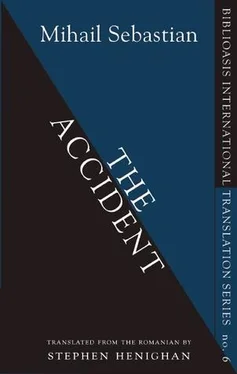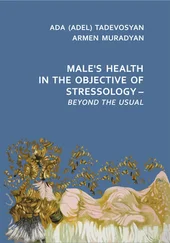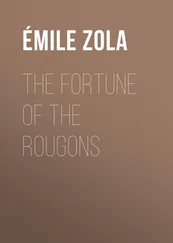He stopped at dawn in a sleeping, deserted Berlin with its broad streets depopulated, with buildings plunged in silence, with pompous statues that seemed somehow unreal in the morning light, like abandoned stage scenery — a city of plaster, a city that seemed to be a life-sized model of itself, where Paul’s steps echoed quietly on the asphalt, one after the other.
He spent the evening in Cologne, waiting for the last train, which was meant to take him to Liège. He was tired, with his eyes sunken from sleeplessness, unshaven, his clothes in disorder. “I look like a man on the run,” he said to himself, staring at himself in the mirror of the station. He had the impression that he was under suspicion on all sides, while the platforms seemed to be packed with police and military patrols.
It was July 1934, shortly after the serious upheavals that had taken place all across Germany, 11and, in his current lamentable state, he could easily be taken for a political fugitive. The entire city was sunken in the tense silence of a siege. The assault troops had been on a forced holiday for a few days, during which wearing uniforms was forbidden, and this unarmed Cologne, without army boots, without peaked caps, without flags, seemed to be a city that had surrendered.
The same atmosphere of deaf panic accompanied him to the border. Muffled voices were audible in the passageways, the door of his compartment opened regularly for interminable checks and inspections, the carriage’s exits were guarded by watchmen. In Aachen, the last stop in Germany, the train was halted before the station and the passengers descended into a double ring of police and customs inspectors. Luminous signs, whistles, curt, harsh commands, collided in the night. Somebody took his passport and examined it in detail, page by page.
“Why are you going to Liège?”
The question surprised him.
Not even he knew well why he was going there. For the first time since his departure this question without an answer was thrown in his face. He lifted his shoulders, at a loss, a gesture which did not respond to the police officer’s question, but rather to his own surprise. But his silence was probably suspect, since the officer abruptly seized the flashlight in his pocket and lifted it towards Paul’s face like the barrel of a revolver. In the glare of the light, Paul met a cold, biting stare that pierced him. I’m lost , he thought. He saw himself being stopped there at the border station, put under escort and sent back to Cologne for further investigation. He had heard that hundreds of arrests were taking place daily at all the border crossings, where the former soldiers of the assault battalions, having escaped the massacre in Munich, were trying to flee in borrowed civilian clothes, with false passports.
The man continued to hold his dazzling flashlight fixed on Paul’s face.
I should speak, I should reply, this silence will sink me , Paul thought. But at the same time he felt incapable of uttering a word, of finding an explanation.
I’m going to Liège to see the woman I love , he thought, but the words remained unspoken, as in that terrible dream in which you feel your throat clenched up, although you want to shout, to call out for help. He was so close to Ann now (58 kilometres from Liège, he reminded himself with a shudder), and yet as far away as ever.
“ Es geht, schön ,” 12the officer muttered, and with a completely unexpected gesture, he turned out the flashlight and returned his passport, moving away.
Only later, when he glimpsed the first peaked cap of a Belgian customs officer and heard the first words of French, did Paul shake loose of the tension of those terrible moments.
From a distance he heard cordial voices, calm, slightly sleepy steps on the platform. I’m in Belgium , he told himself, as though at the end of a nightmare from which he had awoken. He looked for a long time at the rectangle of still-wet red China ink that an official had stamped in his passport:
Hegenrath, 23 juillet 1934. Contrôle des passagers .
Ann wasn’t in Liège. She had left a few days ago, nobody knew where for. At the Romanian pavilion nobody could give him reliable information.
“We inaugurated the pavilion on the 15 thand she left on the 16 th,” Paul was told by one of Ann’s colleagues, who had remained in Liège to supervise some projects that had got behind schedule. “Where did she go? Who knows. Maybe to Brussels, maybe somewhere on the seaside. She was dead tired. At the end she was working day and night. Anyhow, ask at the hotel.”
Nobody at the hotel knew anything more. Ann had left without a forwarding address.
“I’m sure she’s coming back,” the receptionist assured him. “She asked me to hold onto her mail. Furthermore, she left a suitcase here with a whole box of tubes and colours.”
He didn’t even have enough money to go any farther, to look for her in Brussels, nor did he think it would be possible to find her there, in a large, unknown city, where, on the whole, it was unlikely that she was at the moment. The only wise course was to wait here in Liège, where at least it was certain that she would return and where, while waiting for her, there were so many things to see, in this town where Ann had lived for a few weeks and where many things might preserve innumerable small memories of her. There were streets where she had walked, shop windows where she had stopped, thrilling display windows of the Belgian provinces with vague ambitions towards luxury — Paris wasn’t far away! — but with something honest, clumsy, a little gauche in their lack of whimsy.
Surely on rainy evenings along this tepid Meuse River, which ran through the middle of the town, Ann had walked alone, as she liked to do sometimes in Bucharest, bareheaded in a trenchcoat, with her hands in her pockets.
One day, after a similar rain shower, on a wall where the water was unsticking the posters for the latest shows, Paul caught sight of an older, yellowed, half-torn poster: Salle Communale, 26 juin 1934, Clothilde et Alexandre Sacharoff, grand récital de danse . No doubt Ann had gone to that recital: she, who, indifferent to music, retained by contrast a passion for dance that went well beyond that of a normal spectator, a sort of concealed nostalgia that made her regret that instead of painting she hadn’t had the courage to spend her time dancing. There was something in her that felt the call of the open stage, the limelight, the applause… No doubt Ann had gone to that recital, and Paul stood thoughtfully for a long time in front of the poster, which suddenly opened up the vision of the evening of the show, and not an abstract, uncertain evening, lost among thousands of others, but rather a precise evening, which had a name, a date — Wednesday, June 26, 1934, at 8:30 exactly — an evening that he could detach from the time Ann had spent apart from him and relive after such a long time.
The newsreels that were showing at the Liège cinemas that week were dedicated mainly to the exhibitions, and, above all, to the opening ceremonies. Paul watched each of them several times with eagerness, since Ann appeared briefly in them, caught in passing by the reporter’s camera, appearances that were yet so fleeting that no sooner had he glimpsed Ann than she disappeared, as though she had been lost in the crowd. In one of these newsreels — for Fox, Paramount and Pathé each presented the opening ceremonies differently — Ann’s silhouette held steady, distinctly outlined, in the foreground for a few seconds, but with her head turned away at an angle that made Paul feel tempted to cry out to her, to wave, as though it were possible for her to hear him, suddenly turn her head towards him and see him. From a distance one could see King Leopold and Queen Astrid approaching amid a cluster of long-tailed uniforms, and, as the royal group grew nearer, Ann raising herself up on her tiptoes and turning her head to the right, presumably to see better.
Читать дальше












